What is Overnutrition Induced Inflammation?
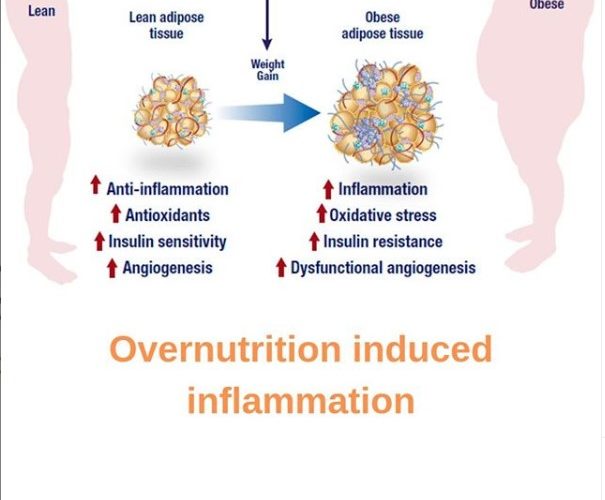
Inflammation is a biological response launched by the immune system against dangerous assaults which threaten the integrity and normal physiology of an organism. Chronic nutrient overload causes an increase in adipose irregularities in that, if adipose tissue expandability is low, there will be an increased presence of thickened tissue. This condition would lead to a […]
Reactive Oxygen Species (ROS) Deteriorate Beta-Cell Function and Escalate Insulin Resistance.
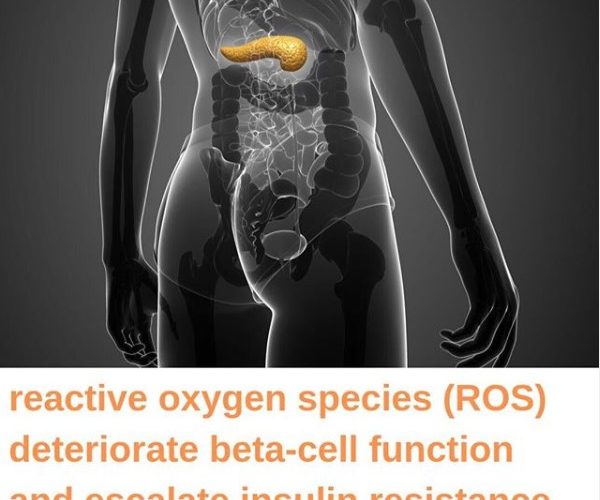
ROS action is generally beneficial. However, under diabetic conditions, chronic hyperglycemia and consequent augmentation of reactive oxygen species (ROS) deteriorate beta-cell function and escalate insulin resistance. This leads to an aggravation of type 2 diabetes. Additionally, chronic hyperglycemia and ROS are also involved in the development of atherosclerosis which is often observed under diabetic conditions. […]
Insulin is The Link Between Adipose Tissue Inflammation and Metabolic Syndrome.
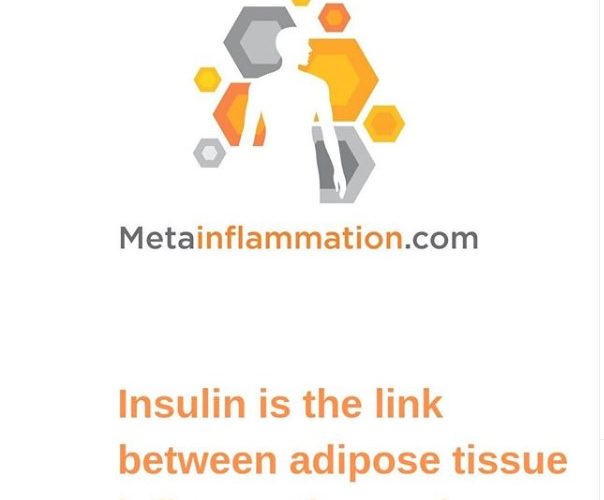
Hyperinsulinemia (HI) serves as the common link between adipose tissue inflammation (ATI) and metabolic syndrome. The obesity-associated metabolic phenotype elevated pro-inflammatory cells (M1 macrophages and NK-cells) suppressed anti-inflammatory cells (M2 macrophages, eosinophils, and regulatory T-cells). Partial reduction of circulating insulin level attenuated excess calorie-induced ATI and improved insulin sensitivity. Mol Cell Endocrinol. 2018 Dec 5;477:15-28. […]
Insulin is The Disease, Glucose is Just The Symptom.
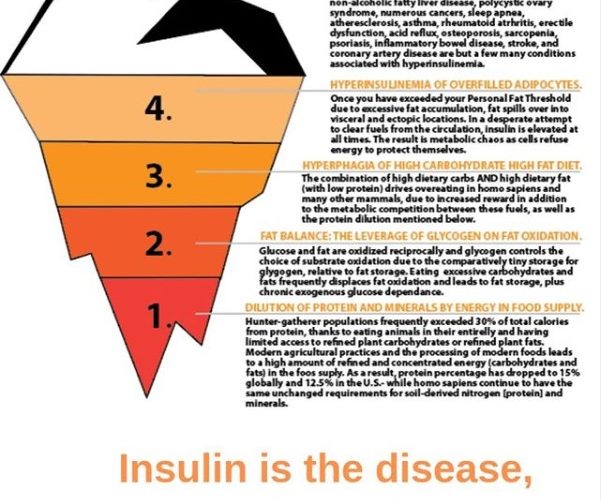
For Type 2 Diabetes to occur, both insulin resistance and comparative inadequate insulin secretion must co-exist. For example, overweight individuals may have insulin resistance, but diabetes only develops in those who cannot increase insulin secretion sufficiently to compensate for their insulin resistance. Unfortunately, this period of hyperinsulinemia prior to the collapse of insulin production permits […]
Insulin is a Fat Storage Hormone
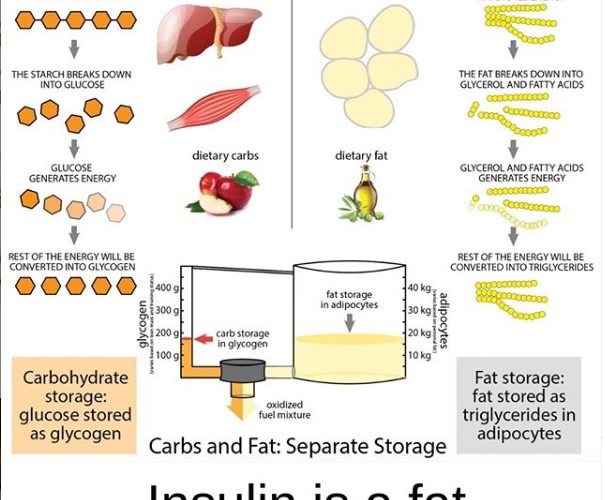
The more insulin you have, the more fat you accumulate. Insulin activates the enzyme hexokinase, which phosphorylates glucose, trapping it within the cell, (and inhibits the activity of glucose-6-phosphatase, preventing phosphorylated glucose from being returned to glucose). Insulin also activates several of the enzymes that are directly involved in glycogen synthesis, including phosphofructokinase and glycogen […]
Insulin Resistance is an Unrecognized Cause of Chronic Pain.
Your pain physician should be addressing obesity and insulin resistance if they hope to ever reverse your pain. Metabolic inflammation (metainflammation) of obesity and hyperinsulinemia is an under-recognized cause of pain in the United States. Musculoskeletal pain has been estimated to affect 13.5%–47% of the general population, and 75 percent of those affected have two […]
Vendors of Death

The prevalence of vending machines that stock soda in schools, particularly elementary schools, is concerning for the overall health and well-being of the country. Sodas are made largely with high fructose corn syrup. Fructose activates the dopaminergic reward system more than glucose, and high fructose corn syrup is spiked with extra fructose, far beyond what […]
Preventing Metabolic Syndrome
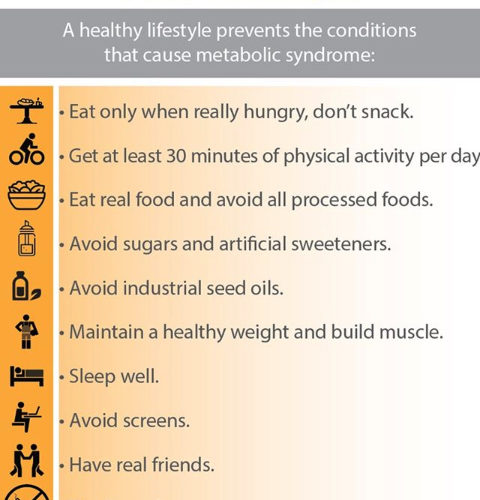
Pain is the leading reason why people come to my practice, and it is the common link between untreated metabolic syndrome and untreated diabetes. I personally evaluate and treat several thousand patients per year for chronic pain, in an urban setting where access to high-intensity healthcare is readily available through several large academic centers as […]
Sugar, Addiction, and Obesity
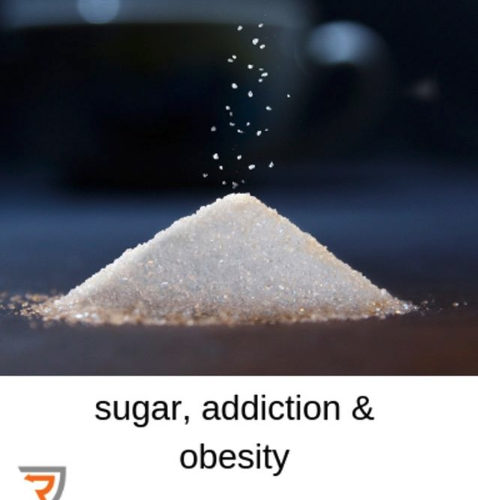
Sugar addiction, especially glucose, leads to obesity because of how it is metabolized. Sucrose (table sugar) is a disaccharide made of 50% fructose and 50% glucose. Sucrose is metabolized primarily in the small intestine, releasing equal parts glucose and fructose. Glucose causes insulin release and is rapidly cleared from the bloodstream by insulin-dependent channels. Fructose […]
Frequent large spikes in insulin

Our eating patterns can influence insulin production and weight gain, and it’s important to give our bodies time to burn energy from food. Most people eat from the time they wake up until the time they go to bed — typically three main meals, multiple snacks, and often soda in between. This pattern leads to […]
